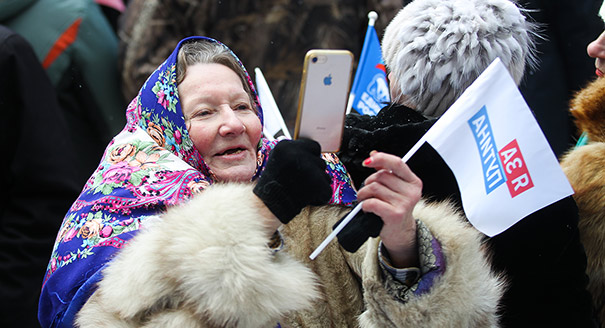Source: La Liberté
Why is it so difficult for Russia and Europe to understand each other?
Personally, I have no illusions: Russian President Vladimir Putin’s irrational politics have caused a deep mutual misunderstanding that now risks becoming a perpetual conflict. The elements of the misperception are as follows:
1. Putin’s Russia is not the same thing as Russia itself. Putin is a classic autocrat who behaves like any other autocrat in the world. The fact that he belongs to the nation of Tolstoy and Dostoyevsky doesn’t change anything; it is simply part of the mythology.
The nature of the support Putin enjoys in Russia is no enigma either: the so-called 80 percent approval rating stems from the answer to the question “Do you support the activity of the Russian president?” The answer is “yes” because Putin—having now outlasted Leonid Brezhnev, who had been in power for eighteen years when he died—is an eternal leader, a symbol of the country, a flag around which to rally.
2. For the average Russian, it is more rational not to participate in the protest movement and to accept an informal social contract: anticipatory obedience to the state in exchange for some crumbs from the oil and gas pie. The essence of the mass support for Putin is total indifference—and fear of a worse life under a different leader.
3. Sanctions can’t change Putin’s policy. They can only mobilize his core and periphery supporters. This is the “besieged fortress” phenomenon: when a nation is under attack, it rallies around its commander, developing something akin to Stockholm syndrome for the leader. The average Russian perceives Western sanctions not as sectoral and/or personal, provoked by various and very concrete reasons, but as an attack on Russia and its people.
4. Reform is not possible in Russia. Putin understands perfectly that he can’t touch the political foundations of his system, because if he does, it will collapse.
5. Putin is not a strong leader. In economic and military terms, the West is much stronger. The role of a global spoiler is not equal to that of a real global player.
6. Alexei Navalny is certainly the most prominent opposition politician in Russia. He is not, however, the voice of the entire opposition movement, and he doesn’t represent all of Russia. The most vocal protest movement in Russia is not politicized; it is driven by pragmatic issues such as infill construction in local neighborhoods and the expansion of landfills.
Finally, for now, Putin is most concerned about his own security. He needs the same kind of successor that he was for Boris Yeltsin. Putin was chosen primarily to ensure the security of Yeltsin, his family, and his political family. He proved more than capable on this front. So what Putin needs is just that: another Putin.
The article was originally published in French in La Liberté.



.jpg)

